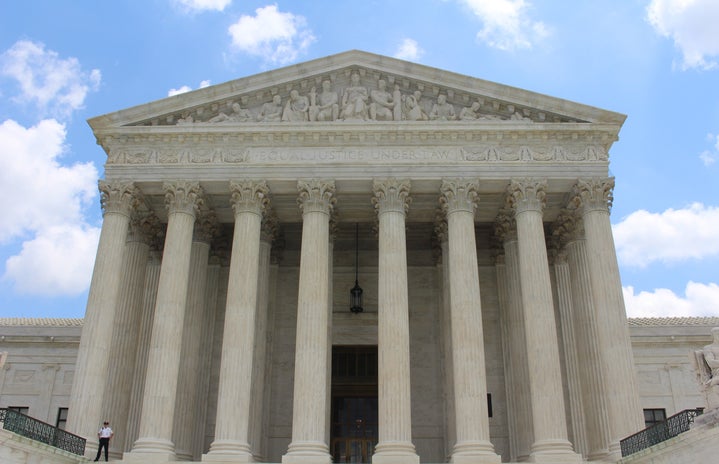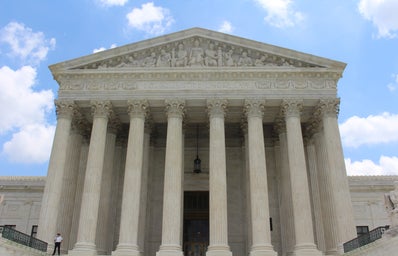Supreme Court Justice and Feminist icon Ruth Bader Ginsburg passed away on September 18th due to complications from metastatic pancreatic cancer. Her death has been followed by political uproar surrounding the speed and fashion in which her seat will be filled.
As one may recall, in 2016, Senate Republicans barred President Obama from filling the Supreme Court vacancy left after the death of Justice Antonin Scalia’s death, claiming the next president should have the right to fill the seat, considering it was an election year. Now, their opinion has shifted, and many Republicans are supporting the speedy nomination of a new justice.
Saturday, September 26th, President Trump officially announced Amy Coney Barrett as his choice to fill the vacancy on the Supreme Court. Here are a few things you should know about the possible next Supreme Court justice.
Amy Coney Barrett was appointed to the United States Court of Appeals for the Seventh Circuit of Chicago by President Trump in 2017. She is described as an originalist, someone who interprets the words of the Constitution as the authors intended them. It is not surprising that this is her chosen philosophy of law considering she was a clerk for the late Supreme Court Justice Antonin Scalia, who was also an ardent originalist.
Barrett is a devout conservative Catholic who is part of a controversial religious group called People of Praise, which has raised many questions about her ability to separate her religion from her work. At her confirmation hearing in 2017, Senator Dianne Feinstein voiced concerns about the influence her faith would have on her rulings, but Barrett insists that her personal religious beliefs have no impact on her responsibilities as a judge.
If President Trump were to successfully appoint Barrett it would have a significant impact on the Supreme Court. There would be a 6-3 conservative majority, and with several groundbreaking cases set to be heard soon regarding the affordable care act and anti-abortion laws, Barrett’s nomination could have a profound impact.
At only 48 years old, if Amy Coney Barret does make her way onto the highest court in the land, she would have a conservative voice that would last decades to come. This is a stark contrast to Ruth Bader Ginsburg, who has a legacy filled with liberal rulings that secured rights for women and members of the LGBTQ+ community. With the November election looming heavily in the background, we are sure to see much upheaval surrounding President Trump’s Supreme Court nomination.



